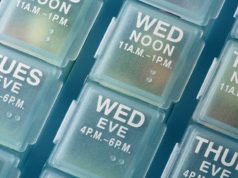Ropivacaine linked to reduced postoperative opioid consumption, pain versus placebo
THURSDAY, June 23, 2016 (HealthDay News) — For women undergoing abdominal hysterectomy, superior hypogastric plexus block with ropivacaine is associated with reduced opioid consumption, according to a study published online June 12 in BJOG: An International Journal of Obstetrics and Gynaecology.
Hanna Rapp, from Gävle Hospital in Sweden, and colleagues conducted a randomized double-blind trial involving women scheduled for total abdominal hysterectomy for a benign indication. Participants were individually randomized to receive 20 ml ropivacaine (38 women) or saline (37 women) retroperitoneally in the area of the superior hypogastric plexus during surgery.
Analysis was performed in 35 and 33 women in the ropivacaine and placebo groups, respectively. The researchers found that participants in the ropivacaine group had significantly lower postoperative opioid consumption than those in the placebo group (median, 55.8 versus 72.4 mg, respectively). In self-assessment of pain, significantly more women in the ropivacaine group scored visual analogue scale score <4 at two hours after block (63 versus 25 percent). There were no side effects or important adverse events during the trial.
“The superior hypogastric plexus block is a new method in this context and a promising contribution to postoperative pain treatment after abdominal hysterectomy,” the authors write.
Abstract
Full Text (subscription or payment may be required)
Copyright © 2016 HealthDay. All rights reserved.








